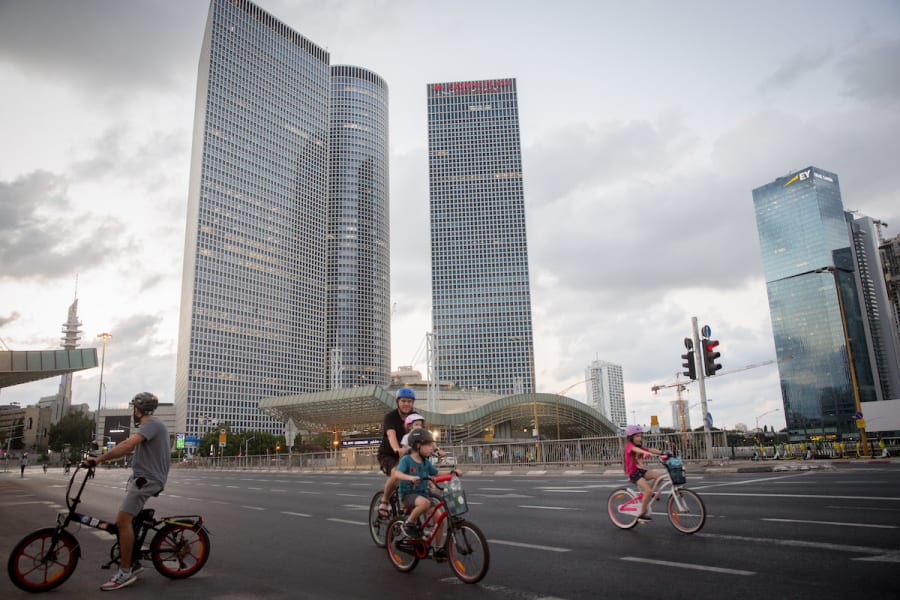Israel observes Yom Kippur, national day of prayer and repentance, beginning Tuesday at sundown
The Jewish state will shut down for 25 hours for Day of Atonement

Yom Kippur, the Day of Atonement – the holiest day in the Jewish faith – begins at sundown on Tuesday, Oct. 4, and ends at sundown on Wednesday.
Following a holiday meal on Tuesday afternoon, Jews worldwide will begin a solemn fast for 25 hours, while they repent and seek forgiveness for the sins of the past year.
As a nation, Israel comes to a metaphorical stop at the start of Yom Kippur; work is not permitted and therefore schools, government offices and businesses are shut down, supermarkets, restaurants and places of entertainment are closed, public and private transportation are not available. While there is no law against driving on Yom Kippur, almost all citizens refrain from traveling, religious and secular alike, apart from an emergency.
Instead, many Jews attend synagogue services that are within walking distance, while the Israeli streets become a recreation space for children, who can be seen walking, playing, riding scooters, skateboards and bicycles in the middle of roads throughout the country.
For Jews, Yom Kippur holds profound and prophetic significance according to scripture. Leviticus 16 and 23 and Numbers 29 state that Yom Kippur is to be treated like a Sabbath – a day of rest – and a time to humble one’s soul while atonement is being made by the high priest for the collective and individual sin of the people.
Most Israeli Jews, religious or secular, will fast food and drink for 25 hours (over two sunsets) and attend special Yom Kippur services at their synagogue to confess sins, ask for mercy, pardon, cleansing and forgiveness. It is common practice to wear white clothing (symbolizing purity) for the services, which open with the Aramaic prayer Kol Nidre, meaning “all vows.”
Religious Jewish males, who have prepared for Yom Kippur throughout the previous Ten Days of Awe, will spend the day praying and reciting liturgy in synagogue. According to rabbinical law, it is forbidden to brush teeth, bathe, apply lotions or oils to the body, wear leather or to engage in sexual relations.
Secular Jewish Israelis observe the traditions, even if they don’t acknowledge God’s existence, simply because participating in the fast and quiet contemplation on Yom Kippur is deeply-rooted in the culture.
Yom Kippur is the completion of the Ten Days of Awe which begins on Rosh Hashanah, the beginning of the Jewish biblical new year. According to tradition, God opens the Book of Life on Rosh Hashanah (the Jewish new year) and closes it on Yom Kippur, when He has decided the fate of each individual. Traditional holiday greetings include the phrase, G'mar Hatima Tova, “May you be sealed in the Book of Life,” based on the belief that God judges on Rosh Hashanah and that judgment is sealed on Yom Kippur.
Messianic Jews and Israeli followers of Yeshua, may choose to spend the day gathering in their congregations or in small groups, or privately with their families to observe Yom Kippur as a dedicated day of prayer for the land and its people, as well as for personal reflection.
Believers will typically fast on this day as intercessors pray for peace, safety, protection, and above all for salvation for its people in accordance with 2 Chronicles 7:14: “If my people who are called by my name humble themselves, and pray and seek my face and turn from their wicked ways, then I will hear from heaven and will forgive their sin and heal their land.”
For believers, the biblical concept of atonement is directly related to the sacrifice of the Messiah who atoned for one and all as the High Priest. God reconciled to His beloved children through the blood of His son, Yeshua HaMashiach, Jesus the Messiah.

The All Israel News Staff is a team of journalists in Israel.












